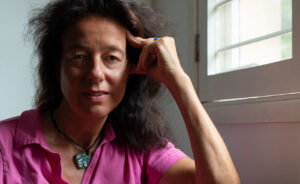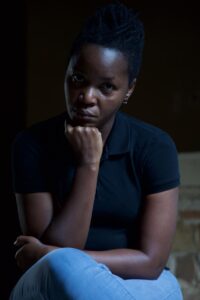The idea for the project ‘See my Story. Copyright by Madgermanes’ was conceived in 2023. At that time, Berlin-based digital storytelling expert, photographer and sociologist Sabine Felber was planning a workshop on digital storytelling with residents of Maputo at the Centro Cultural Moçambicano-Alemão (CCMA) there. The aim was to present the Mozambican capital through biographical stories. However, insufficient planning and the resulting organisational hurdles prevented the project from being implemented.
Nevertheless, Sabine Felber got to know a few former contract workers in Maputo. She spoke with them about their experiences as contract workers in the GDR, about racially motivated violence and the impact that their time in the GDR and post-reunification society has had on the lives of the two Mozambicans to this day.
Until then, Felber had only known the history of German-Mozambican relations from facts and figures in books – around 20,000 Mozambicans worked in the GDR, and with reunification, almost all of them had to leave the country. Around 2,000 Mozambicans still live in Germany today.
But what impact has the shared history of the People’s Republic of Mozambique and the GDR had on the lives of those who were shaped by it in their younger years? Who are these people today? And what do they think about the GDR and reunified Germany?
But in the shared conversation, history suddenly came to life.
The idea for a digital storytelling workshop aimed at former contract workers, the so-called Madgermanes, was born. Unlike traditional eyewitness formats, the digital storytelling method allows participants to shape their stories even more: they decide what is told, in what form and with which images. This results in subjective, honest and impressive perspectives.
Discussions with SED Victims‘ Commissioner Evelyn Zupke and the Federal Foundation for the Reappraisal of the SED Dictatorship led to the project taking shape in early 2024. In Berlin, Felber found the right partner in Afrika Medien Zentrum e. V. to apply for project funding. However, it took until May 2025 for the go-ahead for ‘See the Story. Copyright by Madgermanes’ was finally given. Among other things, this had to do with the changed conditions following the dissolution of the traffic light coalition and the resulting uncertainty about the 2025 federal budget.
Between 25 August and 15 October 2025, the project idea was finally implemented in Maputo.

 Sabine Felber (Idea, Project and artistic direction)
Sabine Felber (Idea, Project and artistic direction)
